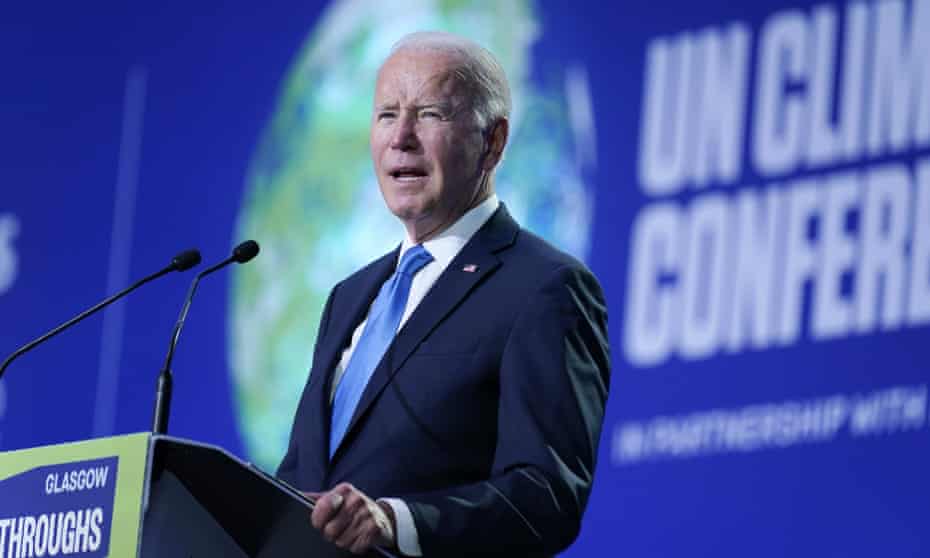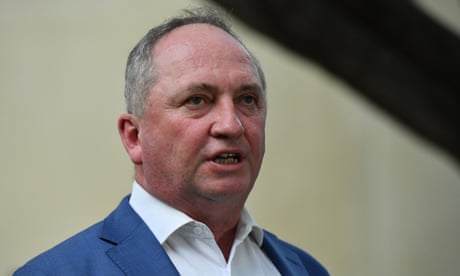Extract from The Guardian
Senior official says US ‘determined that everyone raise ambition’ in tackling climate crisis and stresses need to keep heating below 1.5C.

The assistant US secretary of state for environmental affairs, Monica Medina, said the US was “determined that everyone raise ambition” in tackling the climate crisis in a bid to avoid “greater destruction”.
In an interview with Guardian Australia from Palau in the western Pacific, where she attended an oceans conference, Medina signalled that the US was particularly focused on countries that did not commit to deeper cuts at the climate summit in Glasgow late last year.
“We’re calling on every country that didn’t increase their target to raise it,” she said when asked whether Australia should lift its 2030 target this year.
“We have to stay within 1.5 degrees [of heating]. Every tenth of a degree above that leads to greater disruption, greater destruction, and we can’t get those back.”

Medina said Pacific island countries continually raised climate as the most important issue on their agenda because it was “an existential threat”, and she said reefs including the Great Barrier Reef were “incredibly vulnerable”.
Medina works closely with Joe Biden’s special presidential envoy for climate, John Kerry, who said last week the latest assessment of the Intergovernmental Panel on Climate Change “demands that we act sooner, quicker, faster, bigger than we are”.
Australia is one of the countries that did not increase its 2030 target at the Cop26 summit in Glasgow in November, sticking with the Abbott-era 26% to 28% cut in greenhouse gas emissions against 2005 levels.
Amid internal divisions within the Coalition, Australia submitted a document to the UN that “reaffirmed” that target, while touting projections the country was “on track” to reduce emissions by up to 35%.
Australia is expected to face increased diplomatic pressure to formally commit to deeper cuts this year, because the Glasgow decision urged countries to “revisit and strengthen” their 2030 targets by the end of 2022 to align them with the Paris agreement’s temperature goals.
Just hours after Australia signed up to that Glasgow decision, ministers Marise Payne and Angus Taylor issued a statement declaring Australia’s 2030 target “is fixed and we are committed to meeting and beating it”.
The Labor leader, Anthony Albanese, has pledged to set a 2030 emissions reduction target of 43% on 2005 levels if he wins the election, arguing the Coalition’s existing policies leave Australia sitting “in the naughty corner” at climate conferences, and corrode trust among Pacific countries.
The Australian Greens want to reduce Australia’s emissions by 75% by 2030 and phase out coal and gas.
But when pressed on the fact the Australian formal target remained at the level it was when first set in 2015, Medina said that was “a long time ago – everyone needs to raise their ambition”.
Medina, who is responsible for the state department’s bureau of oceans and international environmental and scientific affairs, reiterated the Biden administration regarded the climate crisis as “a high priority in all our diplomatic engagements”.
Medina said it was important the Our Ocean conference – co-hosted by Palau and the US last week – was held in a Pacific island country “on the leading edge of the climate crisis”.
“The hospital here on Palau is on the other side of a causeway and when there’s a big storm the causeway floods and people can’t get to the hospital,” she said.
“When we talk to Pacific island nations they all talk about climate change as the most important thing that they have on their agenda to work with us on … and we can see it with our very eyes.”
Medina said Pacific island countries were not the big emitters, “but they can be both a place for solutions and for innovation”.
The Great Barrier Reef has been hit with a sixth mass coral bleaching event, the marine park’s authority confirmed last month.
“It’s clearly so, so important to the Australian economy. And I know they’ve stepped up their efforts to combat acidification in the Great Barrier Reef but it’s something we all have to pay attention to.”
Australia sent a delegation to Palau for the two-day conference, led by the ambassador for the environment, Jamie Isbister, and accompanied by Australia’s Sherpa for the high level panel for a sustainable ocean economy, Dr Russell Reichelt.
Other issues on the agenda included curbing plastic pollution and cracking down on illegal, unreported, and unregulated fishing.
Medina said she was optimistic about the prospects of securing a legally binding, global agreement on plastic, a step she saw as “essential”.
“We find plastic particles in the deepest part of the ocean and all the way up to the highest mountain peaks in the Himalayas. We find it in the polar regions, both the Antarctic and the Arctic, it’s everywhere,” she said.
Medina also called for global transparency requirements for fishing boats, saying illegal exploitation of resources was “a huge problem”.
“It’s hurting coastal nations. They’re losing their fish. The world is losing one of its major food sources and it’s just got to stop,” she said.
Egypt is due to host the next major climate summit in November. US officials have previously said they don’t regard Australia’s 2030 target as being consistent with limiting heating to 1.5C above pre-industrial levels.
No comments:
Post a Comment